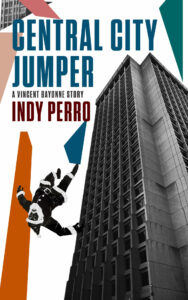Writing takes time.
There’s no getting around it. Everybody knows it. Perhaps the greatest gift a writer can give herself is time.
Giving yourself time is different than patience.
Patience is what we all feel when we stand in line at the post office (right?) or at our local independent bookstore (hopefully). Patience means manifesting forbearance under provocation or strain.
When a writer gives herself time, she’s not simply manifesting forbearance and not trying to force the situation. She’s taking each step one at a time, focusing on that, and moving forward conscientiously.
Easier said than done.
Giving yourself time requires relaxation.
Take a deep breath. Go for a walk. Dissect each component of the problem you face, the reason why your work isn’t improving, the emotional context behind blocking. To parse apart the psycho-emotional goo in one’s writing requires time face-to-face with the page and time away to let the flush of feeling settle.
Take time to make time with yourself and your work.
Giving yourself time is the sweet spot between rushing and procrastination. It means taking the time required to complete a task or develop a skill without getting distracted by the expected outcome. Move forward without spinning wheels stuck in the mud of desire and fear, the dreaded creative block.
Most people fail at this now and again. Let’s keep it real. Most of us probably fail at this more often than not, but there’s no success like failure. Still, developing the practice of giving oneself time will stand a writer in good stead throughout her career.
No writer can push through the development of a character. No writer can force herself to see the plot structure for what it is if there is a reason for a block, a blind spot, which, when developed, will strengthen the work. The demands of time give written work resonance.
Giving yourself time is the sweet spot between rushing and procrastination.
The writer’s struggle becomes the reader’s journey, and the more difficult the journey the more fulfilling the experience.
Respect the demands of time without surrendering to malaise.
Release the tension we hold around desire and fear. Some things can’t be rushed. You, your work, and ultimately the reader will all reap the reward.
Image by Jon Tyson courtesy of Unsplash
HAVE YOU EXPERIENCED THAT TINGLING IN THE BACK OF YOUR HEAD THAT SUGGESTED IF YOU DIDN’T RUSH YOU WOULDN’T BE ENOUGH?
HOW DID YOU SETTLE INTO YOUR WRITING PRACTICE DESPITE A SENSE OF URGENCY? TELL US ABOUT YOUR SUCCESS OR STRUGGLE.





